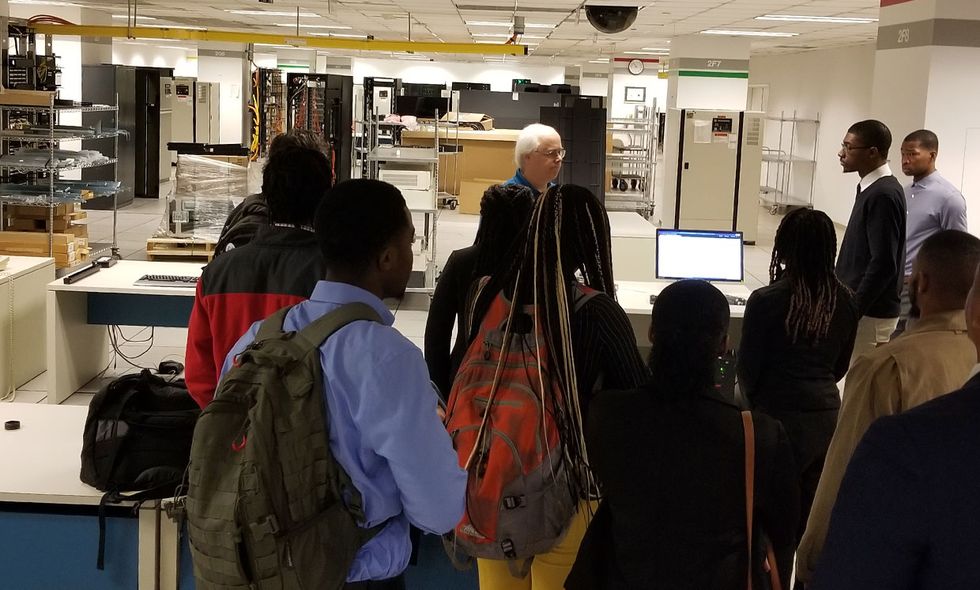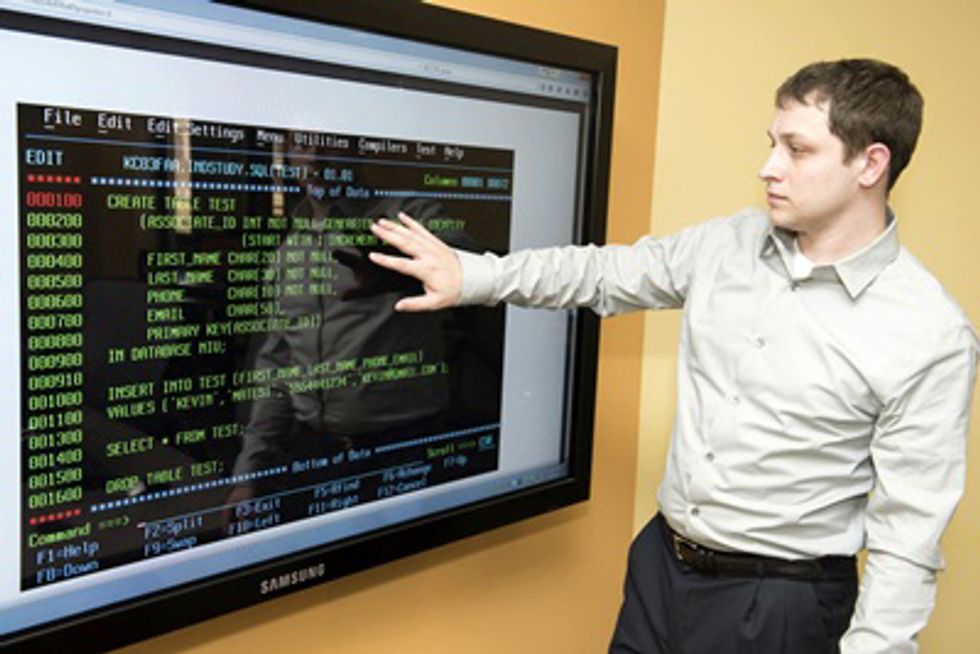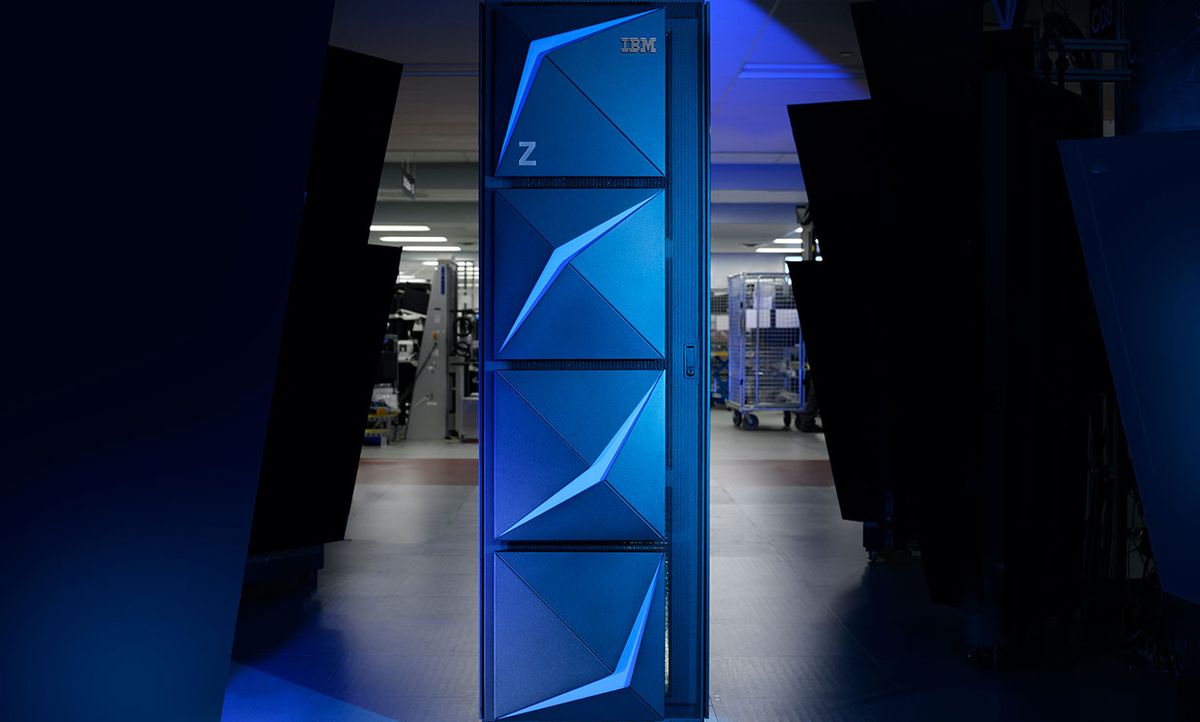If there’s a silver lining to state unemployment insurance systems’ failings caused by the COVID-19 crisis, it’s the attention being paid to the need for people who can program mainframes and work on enterprise-level technology.
Institutions of higher education and companies that sell and rely on mainframe tech are using the situation to trumpet the number of well-paid mainframe programmer and system administrator jobs and the need to train people for them.
Although many college and university computer science departments have cut back or dropped mainframe programming curriculum to focus on more modern languages and technologies, faculty and staff at others report an uptick in interest in Cobol and related classes. The increase began well before pandemic-related layoffs inundated state unemployment agency computer systems, causing government officials to put out the call for programmers who know Cobol to step in and help.
“We’re going to have to start teaching this stuff. Not doing it is not an option,” said Cameron Seay, an adjunct instructor at East Carolina University (ECU) in Greenville, North Carolina, who teaches mainframe technology and Cobol programming. “You’re not going to shove businesses off mainframes. It’s going to stay where it is for the foreseeable future.”
Mainframes are old news—and a lot of the code that runs them is just plain old—compared to popular languages such as SQL, JavaScript, and Python and innovations such as cloud computing, mobile apps, and artificial intelligence. But mainframes still power backend systems that run the economy—in particular at banks, insurance companies, and airlines, as well as myriad federal and state government agencies.
In addition to being abundant, mainframe jobs pay well, and so far, appear not to be as affected by the pandemic as other areas of tech employment. Salaries for entry-level enterprise computing jobs average US $70,100 a year [PDF], according to a 2019 report from tech analyst Forrester Research commissioned by IBM. As recently as this week, jobs boards such as Indeed and Dice.com listed hundreds or in some cases thousands of openings for mainframe positions at all levels. Advertised pay ranges from $30 to $35 an hour for a junior mainframe developer to well over $150,000 a year for a mainframe database administration manager.
Not all employers want to talk about their mainframe needs, possibly for fear of sounding dated. “I’ve changed my language for talking about it. I’m not using ‘legacy’ anymore,” said Art Recesso, chief innovation officer for the University of Georgia System board of regents. The 26-school system launched a $20 million financial-technology curriculum initiative two years ago that includes teaching more mainframe programming.
To help their mainframe customers find enough people with the right skills, companies such as IBM have doubled down on support for university computer science departments with mainframe computing curriculum. Through its IBM Z Academic Initiative, the company partners with about 120 colleges and universities to integrate enterprise computing into their curriculum. It also sponsors apprenticeships and coding challenges. Since launching the Master the Mainframe three-month programming challenge in 2004, the number of high school and college students participating worldwide has grown from 7,000 to 25,000 last year.
“When I talk to students, whether I’m giving a guest lecture at a university or a workshop or a Master the Mainframe career connection, and I explain enterprise IT, their eyes light up, they’re very interested. They just didn’t know about it,” said Meredith Stowell, vice president of the IBM Z Ecosystem, which includes the Academic Initiative.
A Renaissance in Mainframe Education

Interest in extracurricular activities such as Master the Mainframe is indicative of the renaissance that enterprise computing classes are enjoying at some university computer science departments.
This spring, 72 students in ECU’s Department of Technology Systems signed up for an introduction to enterprise servers class, which covers job control language (JCL), interactive system productivity facility (ISPF), and time-sharing options, among other things. That’s the most ever, according to Seay, who teaches one section of the class. A Cobol class that Seay is slated to lead next fall already has enrolled 26 students. When he taught the same class in fall 2019, only eight students signed up.
When ECU hired Seay last year, part of his job was increasing industry outreach, including bringing companies such as Bank of America, Wells Fargo, and IBM on campus to talk to the 1,500 students in the department. He thinks getting students to connect what they learn in the classroom with the jobs they could get after graduating is one reason more have shown interest in mainframe languages. “The students want to go where they can make good money, so it hasn’t been hard to sell them on it,” Seay said.
The University System of Georgia’s FinTech Academy is meant to increase the number of students pursuing degrees in the field in order to fill a talent gap in the state’s fintech industry, and includes courses on mainframe programming languages. Recent developments putting mainframes in the spotlight came as no surprise to faculty within the system, which includes two schools Recesso said are “way out in front” on mainframe curriculum, Columbus State University, and Albany State University, a historically black university. “Faculty are so excited that this is on the radar,” he said. “Some have advocated for this for years. They understand how it fits into the economy and how valuable it is for students.”
Other schools have deemphasized their mainframe curriculum. Seay joined ECU after teaching mainframe computing for eight years as an assistant professor at North Carolina A&T State University in Greensboro. He said he left because he felt the school’s computer science department no longer supported the curriculum.

Another school that appears to be cutting back is Northern Illinois University in DeKalb, a long-time enterprise computing powerhouse that Seay called “the creme de la creme of mainframe education.” NIU has had a computer science discipline since 1971. In recent years, students in the NIU Department of Computer Science have taken top honors at IBM’s annual Master the Mainframe coding contest.
But the number of NIU tenure-track faculty and instructors who teach mainframe languages such as Cobol and assembly language – known by coders as “assembly” or “assembler” – have dwindled as people retired and weren’t replaced, said Geoffrey Decker, a NIU instructor since 2001. Decker teaches classes in assembly and Cobol, among other subjects. He’s one of two instructors who specialize in mainframe curriculum, Decker said.
NIU graduates with mainframe specialties have been hired by such companies as Allstate, Broadcom, and BMC Software. Companies “love them, they say they’re well prepared,” Decker said. “But no matter how many of them talk to the department, and I talk to the department about how much they like them, they don’t get the sign that it’s really important.”
Nicholas Karonis, the computer science department chair, did not respond to a request for a comment. However, Joe King, NIU associate director of institutional communications, said the department has more than half a dozen faculty who can teach mainframe classes, and those classes will continue to be offered in coming semesters. “Because of the nature of the discipline, the NIU computer science department, like all computer science departments across the country, will continue to examine its curricula to keep pace with student, industry and labor-force demands,” he said.
Reaching Out to Non-Traditional Learners and Career Changers
Companies hiring people for entry-level mainframe jobs aren’t relying solely on four-year institutions to produce qualified candidates. This week, IBM started offering free Cobol classes online, spurred in part by state unemployment agencies that need programmers who can work in the language. The company also launched the Open Mainframe Project forum where Cobol programmers who want to volunteer or get hired can post their profiles. Last year, IBM partnered with the state of California on a two-year public-private technology apprenticeship program to reskill state employees in such areas as mainframe system administration, software engineering, and application development.
Broadcom partners with customers to pay for people to learn mainframe basics in a 24- to 26-week Mainframe Vitality Program, which the company offers twice a year. According to the program’s website, Broadcom launched the program to “address the declining resource of mainframe skills.”
Certificate programs and boot camps appeal to non-traditional learners and career changers who see mainframe programming as a steady and potentially recession-proof job.
One of them is Laticia Carrow. The McKinney, Texas, resident, who is in her 40s, worked as a hairdresser most of her career but spent the past two years teaching herself about mainframes and cybersecurity, for better job security. After getting laid off from a salon job in the summer of 2018, Carrow qualified for a job skills retraining grant through the Workforce Innovation and Opportunity Act that she used to complete a bootcamp-style computer certification-track course.
Since then, Carrow has become active in the online mainframe community, got crowdfunded to attend the Def Con hacking conference, and came home convinced she needed to learn Cobol. She completed the 2019 Master the Mainframe challenge, and last year, talked her way into a spot in Broadcom’s Mainframe Vitality Program. She had to drop out after a supervisor learned she hadn’t finished an associate’s degree, which is a prerequisite for the program. It was a setback, but Carrow continues to interview for jobs, and said recruiters don’t seem to mind her lack of a degree. One told her that back in the day, many Cobol and assembly programmers didn’t have degrees—that “they were regular people,” Carrow said.
As bad as the pandemic has been for the economy, it could be a blessing for the mainframe community if it alerts schools to opportunities for students, said Deck, the NIU instructor. “They’re going to (realize) there’s still code out there that needs to be enhanced, fixed, or changed in some way, and it’s mainframe stuff. And they’ll start saying, maybe we need to teach this. I hope that’s what happens, I really do.”



